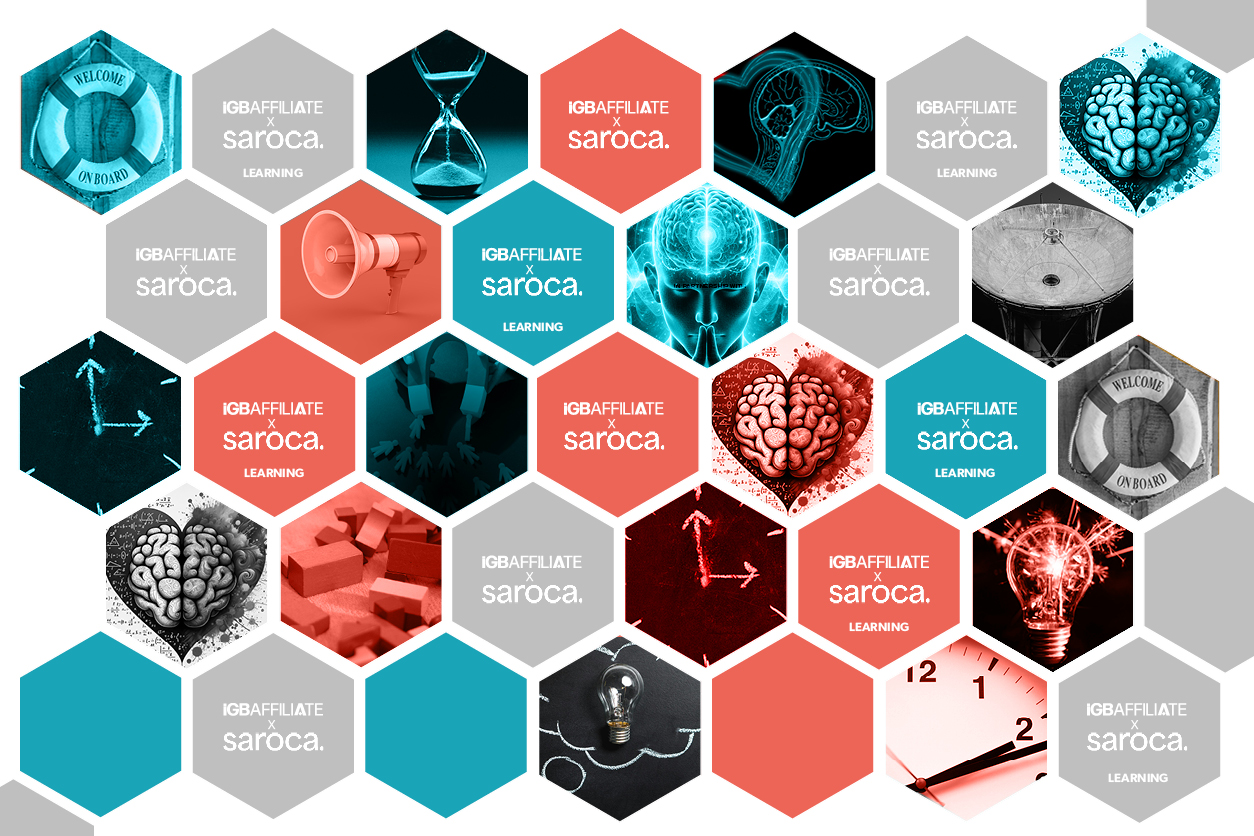

Continuing our learning series with Saroca, CEO Emily Haruko Leeb, uncovers the talent of emotional intelligence and how you can build it to not just earn more, but also thrive in igaming environments
In the complex tapestry of human interaction, emotional intelligence (EQ) stands as one of the most critical and transformative skills a person can develop. Far from being a vague concept relegated to self-help literature, EQ is a proven force multiplier in professional and personal arenas alike. It’s the ability to recognise, understand, and manage our own experiences while simultaneously attuning to the emotions and perspectives of others. This dual mastery of self-awareness and empathy underpins the most effective leadership, decision-making, and collaboration.
Why emotional intelligence matters
In business, success is often mistakenly attributed solely to technical expertise or raw intelligence. While those traits have their place, research shows EQ is the real differentiator. Fast Company in its research highlighted compelling evidence on the subject with the following findings:
- Coca-Cola leaders trained in EQ outperformed their targets by an impressive 15%
- A staggering 85% of financial success stems from "human engineering"—the ability to build and manage relationships
- Individuals with high EQ earn, on average, 30% more than their lower-EQ peers
- Among top-performing professionals, 90% share one defining trait: elevated emotional intelligence
- EQ accounts for 58% of job performance, cutting across industries and roles
These statistics underscore a simple truth in that the ability to navigate emotions—both our own and those of others—is foundational to achieving peak performance.
Emotional regulation
At the core of EQ is emotional regulation, the skill that allows us to manage our feelings constructively rather than being overwhelmed or controlled by them. Regulation doesn’t mean suppressing emotions; it means owning them. For instance, when faced with frustration, it’s vital to:
- Acknowledge the feeling: This is frustration
- Own the facts: I missed a deadline
- Shift perspective: What can I learn from this? How might this help me grow?
- Change the environment: A short walk or a conversation in a new setting can shift the emotional tide
- By grounding ourselves in these steps, we create a pause between emotion and reaction—a space where thoughtful decisions can emerge
Regulation doesn’t mean suppressing emotions; it means owning them
The science of emotional storytelling
Humans are unique amongst living organisms, we have the capacity to attach narratives to emotions. Charles Darwin, often remembered for his groundbreaking work on evolution, was also a pioneer in emotional psychology. His book The Expression of the Emotions in Man and Animals explored the universal nature of emotions, highlighting similarities in how humans, animals, and even plants express and respond to stimuli.
Darwin’s insights remind us that emotions are primal, they arise naturally and universally. However, humans take this a step further by creating a story around those emotions. For instance, anger might be the initial feeling, but we attach meaning to it e.g. “They excluded me on purpose”. The story can amplify the emotion, making it harder to regulate.
Separating the emotion from the story is a crucial aspect of emotional intelligence. The feeling is the raw data, the immediate physiological response. The story, however, is our interpretation, often influenced by past experiences, biases, or assumptions. When we can differentiate the two, we take back control:
- The emotion: I feel angry
- The story: I believe they deliberately excluded me
- By examining the story, we can ask ourselves: Is this interpretation true? Could there be another explanation?
Emotional intelligence in action
Consider a leader navigating a high-stakes meeting where tensions are high. Without EQ, they might respond to criticism defensively, damaging relationships and derailing the discussion. With EQ, they can recognise their initial feelings, regulate their response, and engage with empathy and perspective. This creates an atmosphere of trust and collaboration, leading to more effective problem-solving.
Separating the emotion from the story is a crucial aspect of emotional intelligence
Similarly, teams with high EQ communicate more effectively, resolve conflicts constructively, and innovate with greater agility. By understanding and valuing the emotions of others, they create a culture where everyone feels seen and heard—a cornerstone of engagement and productivity.
There’s a particular experience that showcases how crucial emotional intelligence is in a tense setting in the igaming industry, which I think will help emphasise this point. While boardroom stories can be a little dry, I’ve tried to give it a slightly more entertaining style.
It was Spring of 2017 in the boardroom of a leading igaming operator, tensions ran high. A key supplier had accused the company of breaching a multimillion-dollar contract, threatening a lawsuit. Lawyers braced for battle, but the operator’s CEO deployed a different approach. One of emotional intelligence.
“Let’s address this openly,” the CEO began, their tone calm and steady. Recognising the supplier’s frustration, they empathised: “I understand this has caused strain, and I’m here to make it right.” Their calm tone and acknowledgement diffused the tension. Instead of defensiveness, they listened deeply, and then disclosed the root issue: delayed payments due to a technical glitch.
They stayed composed, proposing an immediate fix—expedited payments and a shared system for financial updates moving forward. “How else can we rebuild trust?” they asked. The supplier’s CEO paused, then agreed.
What could have spiralled into a costly lawsuit instead became a collaboration. The resolution saved the operator over $2 million in legal fees and preserved a vital partnership. Emotional intelligence didn’t just solve a crisis; it turned it into an opportunity and inspired the innovation for some of the real-time payment tracking and financial dashboards we see today.
Building emotional intelligence
EQ is not a fixed trait, it’s a skill that can be developed and refined. Start by:
- Practising self-awareness: Regularly reflect on your emotions and the stories you attach to them. Journaling can be a powerful tool for this
- Cultivating empathy: Seek to understand others’ perspectives, even when you disagree. Active listening is key
- Enhancing emotional regulation: Experiment with strategies like mindfulness, reframing challenges, or physical movement to shift your mental state
[EQ] builds resilience in the face of challenges, allowing us to respond thoughtfully rather than react impulsively
A lasting competitive edge
In today’s fast-paced, interconnected world of gaming, where customer experience is paramount and competition is fierce, EQ plays an indispensable role. EQ isn’t just a “nice-to-have” skill, it’s a necessity. Operators, affiliates, suppliers and leaders alike must navigate a landscape of high-stakes decision-making, diverse customer needs, and rapid technological advancements.
EQ enhances interpersonal relationships, fosters clear communication, driving effective decision-making. More importantly, it builds resilience in the face of challenges, allowing us to respond thoughtfully rather than react impulsively.
As we strive to lead with EQ, Darwin’s timeless wisdom echoes: emotions are universal, but our ability to understand and shape them is uniquely human. By mastering this, we unlock not only our own potential but also the vast potential within our industry. EQ enables professionals to foster authentic connections with customers and suppliers, build trust, and create environments that are both engaging and responsible.
Empathy is critical to understanding player behaviour, addressing concerns. Moreover, EQ helps teams collaborate effectively, adapt to industry shifts, and maintain the ethical standards essential to sustaining trust in an increasingly scrutinised sector.

Emily Haruko Leeb
is a seasoned executive, life and leadership coach with over 11 years of experience in the world of corporate transformation. She started her remarkable journey of serial entrepreneurship at age 19 when she founded her own direct sales company, she then moved into advertising, followed by a career in media production management in igaming. Emily is now the CEO and co-founder of Saroca, a management consulting firm providing customized and practical talent development solutions for the gaming, medical and tech industries.